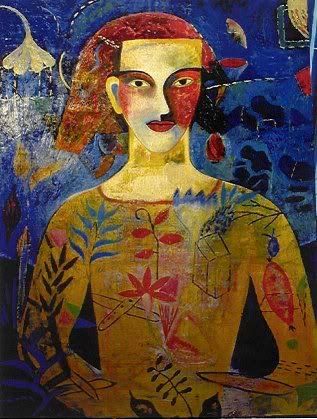EROS AND THANATOS

In Greek mythology, Thanatos (θάνατος, "death") was the personification of death (Roman equivalent: Mors). He was a creature of bone-chilling darkness. He was a son of Nyx and twin of Hypnos. He plays little role in the myths. He became rather overshadowed by Hades the lord of death. Night, the destructive, brought forth a horde of villainous immortals. Thanatos was one of that wretched lot.
Night’s offspring are described as "horrible, painful, cruel, brooding, mocking and malignant." (Theogony, 212). (The one exception is "loving Affection" who is placed between Deception and Old Age.)
Thanatos might be poetically called the brother of Sleep and the son of Night.
In art, Thanatos was depicted as a young man carrying a butterfly, wreath or inversed torch in his hands. He sometimes has two wings and a sword attached to his belt.
In psychoanalytical theory, Thanatos is the death instinct, which opposes Eros. The "death instinct" identified by Sigmund Freud, which signals a desire to give up the struggle of life and return to quiescence and the grave. This should not be confused with a similar urge/force destrudo.
"Thanatos" is the name of a character in the popular webcomic Bigger Than Cheeses. He is a villain in the Marvel Comics universe as well as the villain in the series T*Witches and the Square Enix video game Seiken Densetsu. The name/concept also appears in an episode of "Dead Like Me" (Season 2).
Mars is not the Roman equivalent of Thanatos. Thanatos is death. Mars, the god of war, is Ares' Roman equivalent.
In Freudian psychology, Eros is the life instinct innate in all humans. It is the desire to create life and favours productivity and construction. Eros battles against the destructive death instinct of Thanatos. Also referred to in terms of Libido or Libidinal energy.
Sigmund Freud introduced the term and pointed out that libido is the instinctual energy or force that can come into conflict with the conventions of civilized behavior. It is the need to conform to society and control the libido, contained in what Freud defined as the Id, that leads to tension and disturbance in both society and the individual. This disturbance Freud labelled neurosis.
Libido is generally considered synonymous with such concepts as élan vital and psychophysiological energy; related concepts from Eastern philosophy include Kundalini and Tantra.
Libido can also be classified as the urge to create life. Naturally for humanity the natural way through which this occurs is through sex. However at a deep subconscious level, the two can be merged as one, given the reason in evolutionary terms for sexual attraction and sex drive. Using this term, the antonym of libido is destrudo.


0 Comments:
Post a Comment
<< Home